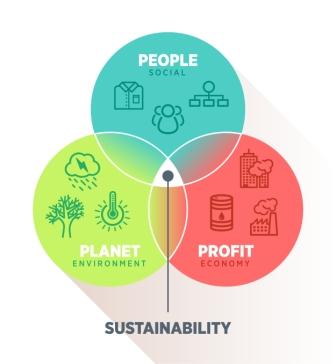The green economy is a model of economic development that evaluates a productive activity not only on the basis of the benefits deriving from growth but also from its environmental impact.
In particular, the objective of public and private investments is to reduce pollution, increase energy and resource efficiency and preserve biodiversity. In fact, sustainable development links the protection of human resources to the economic, social and institutional dimension to meet the needs of current generations and avoid compromising the ability of future ones to satisfy their own.Companies are also called to do their part.
Corporate social responsibility, in corporate English social responsibility or CSR, is the willingness of companies to effectively manage the problems of their social and ethical impact, both within the company and in the context that surrounds them.

In the United States: SASB and CDSB promote sustainable companies
In the United States there are bodies that help companies in sustainable economic growth. The Sustainability Accounting Standards Board (called SASB) is an independent body established in 2011 that encourages the disclosure of information on corporate sustainability to investors. Recently, SASB shared the recommendations of the G20 Task Force on publishing climate-related financial information (TCFD). The Task Force is led by Michael Bloomberg, entrepreneur and former mayor of New York. The councils are also promoted by the Climate Disclosure Standard Board, an international consortium of companies and NGOs that promotes a model for presenting environmental information. Spreading news on the environmental impact of companies, in fact, is not only good for the planet but also for the companies themselves.
Research on corporate environmental responsibility
Studies show that companies that operate sustainably have better returns on the stock market. In particular, the Harvard researchers, using the SASB model, found that companies with an excellent assessment of environmental issues have a better profit than those with lower estimates. The results are confirmed by the report of the Boston Consulting Group, according to which "investors reward the best performances on environmental issues with valuations between 3% and 19% greater than the average performances".

 English (UK)
English (UK)  Italiano (Italia)
Italiano (Italia)  Deutsch (Deutschland)
Deutsch (Deutschland)  Français (France)
Français (France) 











